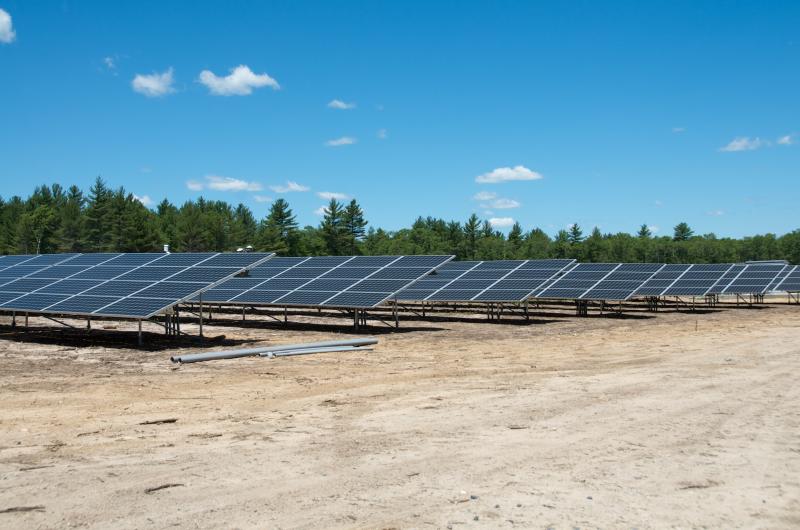Solar garden site spurs opposition
Marion is in the process of establishing a “solar garden” on the town’s landfill. At least one citizen is crying foul – warning that putting anything on the landfill would be an environmental and financial risk.
While state law, regulation and permitting all appear firmly on the side of the solar garden, former Planning Board Ted North is not backing down.
“Using the town landfill has never been a good option from a liability, public policy or cost standpoint,” North wrote in a recent letter to the editor. “This solar project on the town’s capped landfill is a bad business deal from the get go. It’s high risk with very low economic benefit.”
Earlier this year, the Energy Management Committee moved ahead to bring a community solar garden open exclusively to Marion residents.
Community solar gardens are power installations where individuals or businesses purchase credits that are applied to electric bills. Committee members said the landfill project would give residents whose property isn’t appropriate for solar arrays access to renewable energy.
Recently, the Brewster-based company My Generation Energy Inc. was awarded the contract to build and manage the 2.4-acre garden on the landfill’s 50-acre property.
The company is also constructing a solar garden on County Road.
North said committee members should focus on similar projects.
“The private solar garden to be located off County Road on environmental benign and undeveloped property is a good place for this group to relocate their agenda,” North wrote.
He also said any construction on the landfill would pose an environmental liability if the protective membrane covering the garbage is punctured.
“Environmental issues are real,” North said. “There is no demonstrated long-term history of the safety of solar projects on capped landfills.”
Committee members say that fear is unfounded.
“The capping technology is sound and durable, and solar arrays are constructive uses for these environmentally damaged areas with near-risk to the cap,” members wrote in a letter to the editor.
Also, the project has received approval from Town Meeting voters and Selectmen. From the state’s perspective, solar arrays on landfills are welcome.
The Massachusetts Department of Environmental Protection encourages reusing closed and capped landfills for renewable energy, such as wind turbines and solar panels.
To date, the agency has issued 52 permits for solar arrays atop landfills. Of those 52 projects, 30 are operational; eight are under construction. Those projects generate approximately 68 megawatts of power, which provides electricity to roughly 68,000 homes.
Energy management committee member Jennifer Francis noted that the state offers programs promoting the use of solar gardens that include a recently adopted Solar Energy Renewable Energy Certificate (SREC) program.
“The largest incentives in the state’s new SREC program is particularly favorable to arrays on capped landfills and to community solar gardens, and Marion’s project will be both,” Francis said.
Residents may purchase one or more 10-year subscriptions for electricity at rates guaranteed to be lower than what NSTAR charges.
It is unclear what subscriptions will cost for landfill solar garden or how much money residents can expect to save at this time, according to the committee.
North said those costs, which he based on advertised rates at County Road’s solar garden, will be too high for most.
“Only a limited number of wealthy individuals are going to be able to participate,” North said. “The $5,000 investment per share is supposed to return $7,300 over the ten year period, which is only a 3.75 percent annual return. You would do better with a Roth IRA.”
Francis said her committee would ensure some subscriptions are available at reduced rates “that will suit those with modest means and needs.”
North said another risk for garden participants is that meter rates could decrease during the contract.
“It’s very possible the solar contracts could end upside down,” he said.
Committee members said North’s arguments against the landfill solar garden aren’t in line with the majority of the opinions of the a majority of residents.
“All residents would benefit from the tax and lease payments to the town, as well as the knowledge that Marion is becoming ‘greener,” committee members said.















